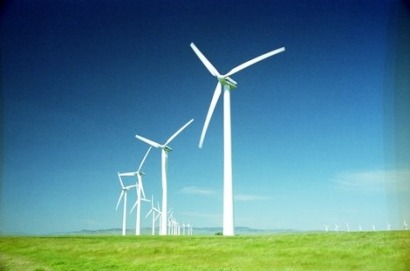
The study was conducted by the global wind energy development company Windlab Systems and also found that the reductions were achieved without the need for additional back-up generating capacity. Over the last eight years, South Australia has installed a large number of wind forms such that about a quarter of the electricity consumed in the region is now generated by wind.
“This study is particularly timely and poignant” said Roger Price, CEO of Windlab. “There is clear evidence that the common complaints made against wind energy are wrong. Wind power does not need continual ‘back-up’ and the costs are not onerous.”
Between 2005 and 2013, the amount of wind generation in South Australia grew from 388 MW to 1203 MW. Wind now makes up 24 percent of the state’s installed capacity and 28 percent of electricity produced within the State, indicating that the capacity factor of wind exceeds that of the system. In 2014 wind energy will be able to produce enough electricity to supply the annual demand of every house in the state.
Over this same period, there has been very little if any change in South Australia’s wholesale electricity costs, in real terms, compared to prices across the rest of the National Electricity Market (NEM). The study has also found that prices have not risen even if the full cost of the renewable generation certificates (REC) are taken into account.
Roger Price went on to add that wind energy critics would be surprised at the fact that there had been no proportional increase in back-up generation capacity.
“In fact the state’s reliance on expensive and emission-intensive peaking plants has dropped as have imports of electricity from Victoria” Mr Price said. “As a result, CO2 emissions due to electricity generation have plummeted 34%, while electricity usage remained stable. The findings should provide clear guidance to the Federal Government’s Renewable Energy Target (RET) review panel that wind energy and by association the RET should not be a scapegoat for explaining increases in domestic and business energy costs. The study further underpins the conclusions of the Clean Energy Council’s commissioned report into the positive cost implications of the RET.”
The report’s co-author, Dr David Osmond from the WindScape Institute, added that the study provides strong evidence that wind energy is a cost-effective and reliable means of achieving large scale emissions reductions and that the South Australian experience provides no evidence that there have been either direct or indirect cost increases for consumers through the introduction of large amounts of wind energy into their market.
Windlab used publicly available data from the Australian Energy Market Operator (AEMO) to complete the study.
For additional information:

